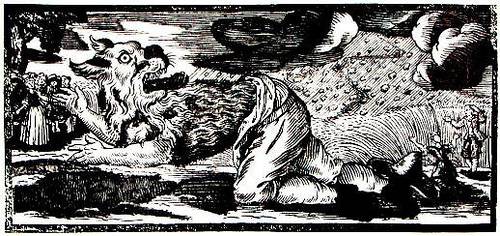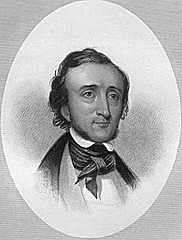
Russian spell to invoke a werewolf, cited in The Book of Werewolves (1865) by Sabine Baring-Gould:
He who desires to become an oboroten, let him seek in the forest a hewn-down tree; let him stab it with a small copper knife, and walk round the tree, repeating the following incantation:
On the sea, on the ocean, on the island, on Bujan,
On the empty pasture gleams the moon, on an ashstock lying
In a green wood, in a gloomy vale.
Towards the stock wandereth a shaggy wolf,
Horned cattle seeking for his sharp white fangs;
But the wolf enters not the forest,
But the wolf dives not into the shadowy vale,
Moon, moon, gold-horned moon,
Check the flight of bullets, blunt the hunters’ knives,
Break the shepherds’ cudgels,
Cast wild fear upon all cattle,
On men, all creeping things,
That they may not catch the grey wolf,
That they may not rend his warm skin!
My word is binding, more binding than sleep,
More binding than the promise of a hero!Then he springs thrice over the tree and runs into the forest, transformed into a wolf.
“A gentleman,” said Lana Turner, “is simply a patient wolf.”



